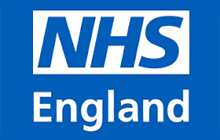About the Venous Thromboembolism programme
 Venous Thromboembolism (VTE) is a significant cause of mortality, long-term disability and chronic ill-health problems – many of which are avoidable. 1 in 20 people will have a VTE at some time in their life and the risk increases with age. It is estimated that as many as half of all cases of VTE are associated with hospitalisation for medical illness or surgery. VTE is an international patient safety issue and its prevention has been recognised as a clinical priority for the NHS in England.
Venous Thromboembolism (VTE) is a significant cause of mortality, long-term disability and chronic ill-health problems – many of which are avoidable. 1 in 20 people will have a VTE at some time in their life and the risk increases with age. It is estimated that as many as half of all cases of VTE are associated with hospitalisation for medical illness or surgery. VTE is an international patient safety issue and its prevention has been recognised as a clinical priority for the NHS in England.
Knowing the signs & symptoms of VTE can save lives
This video tells the story of former England International Goalkeeper Paul Robinson who developed a pulmonary embolism 5 days after having being admitted to hospital for a routine operation.
Please click the following image to play the video:
VTE prevention elearning course
These resources have been developed in partnership with the NHS England National VTE Prevention Programme. The elearning session for healthcare professionals in Secondary Care first published in 2010 and updated in 2013 and 2019 is aimed at nurses, pharmacists and junior doctors to help them understand the concept of hospital-associated thrombosis and how to prevent it.
Three new sessions were developed in 2014 and updated in 2019.
The first is aimed at Primary Care to increase the awareness of healthcare-related VTE and enhance the quality of patient care with respect to VTE prevention prior to hospital admission and after discharge. It is designed for all healthcare professionals including GPs, nurses, health visitors, midwives and community pharmacists.
The second session has been developed for commissioners. This elearning session provides a brief overview of venous thromboembolism as a condition and outlines the key role that commissioners have to play in ensuring that the delivery of acute care services across a range of medical & surgical specialties is underpinned by a high quality approach to VTE prevention in order to improve outcomes for patients.
The third elearning session is aimed at undergraduates and is focused on the pathophysiology of VTE and pre-disposing risk factors, as well as outlining why prevention is so important in the context of the national programme.
-
VTE Prevention in Primary Care
This session is aimed at Primary Care to increase the awareness of healthcare-related VTE and enhance the quality of patient care with respect to VTE prevention prior to hospital admission and after discharge. It is designed for all healthcare professionals including GPs, nurses, health visitors, midwives and community pharmacists.
-
VTE Prevention in Secondary Care
The prevention of venous thromboembolism (VTE) in hospitalised patients is a top clinical priority in the NHS. The National VTE Prevention Programme provides a comprehensive, integrated and financially incentivised approach to prevent VTE.
In this session, you will learn how to assess a patient's risk of VTE and choose a suitable prevention method (thromboprophylaxis), understand the importance of performing root cause analyses of cases of VTE in hospitalised patients, and how to audit each of these steps.
-
VTE Prevention: A Guide for Commissioners
This session has been developed for commissioners. This elearning session provides a brief overview of venous thromboembolism as a condition and outlines the key role that commissioners have to play in ensuring that the delivery of acute care services across a range of medical and surgical specialties is underpinned by a high quality approach to VTE prevention in order to improve outcomes for patients.
-
VTE Prevention for Healthcare Undergraduate Students
This elearning session is aimed at undergraduates and is focused on the pathophysiology of VTE and pre-disposing risk factors, as well as outlining why prevention is so important in the context of the national programme.
The content of the VTE prevention elearning sessions aimed at secondary care and primary care is suitable for midwives. Additional information specific to the profession is available from the Royal College of Midwives (RCM) in the session they have developed on VTE which briefly addresses the impact of VTE during pregnancy and postnatally and the role of the midwife. The session can be accessed here free of charge by all RCM members (it is not accessible to non RCM members).




